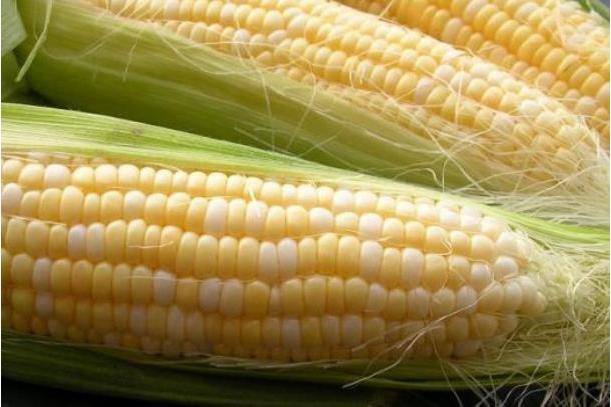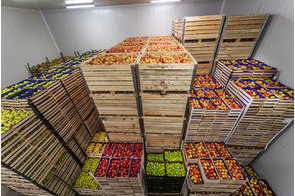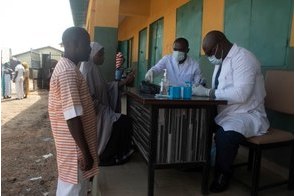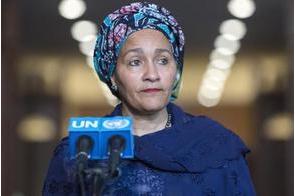Latest News
Nigeria emerges as regional hub for homegrown seed production companies

News Highlight
Nigeria's Value Seeds, ranked number one on the Access to Seeds Index 2019 – Western and Central Africa, is involved in seed research, multiplication, processing and distribution of hybrids and seeds of improved varieties.
Nigeria's Value Seeds Limited, an indigenous crop seed production solution and development company, has topped the Access to Seeds Index 2019 – Western and Central Africa. The index, which focuses on 23 leading seed companies in this region, is a subset of the Access to Seeds Index, one of the first Sustainable Development Goals (SDGs) benchmarks published by the World Benchmarking Alliance (WBA). Other Nigerian companies that also dominate the top half of the ranking are Maslaha Seeds (ranked 6th), Premier Seed (11th), and Da-Allgreen Seeds (12th).
According to a statement released on Wednesday by Access to Seeds Index, the dominance of Nigerian seed companies on the ranking underscores the strong potential of homegrown seed companies to reach smallholder farmers, and boosts the seed industry in the country. The Amsterdam-based Access to Seeds Foundation, which launched the report, said seed companies are a crucial partner in efforts to raise the productivity of smallholder farmers and achieve food and nutrition security.
According to the Foundation, the 23 seed companies in the regional ranking are those taking the lead in reaching smallholders in Western and Central Africa. Value Seeds, incorporated in 2009, is involved in seed research, multiplication, processing and distribution of hybrids and seeds of improved varieties. By providing maize and rice ‘value kits’ and training, the Zaria-based company reportedly improves accessibility and affordability of quality seed, particularly for next-generation and women farmers.
Initiated by Access to Seeds Foundation, the index was launched in September 2018 during the UN General Assembly in New York. The goal of World Benchmarking Alliance's benchmarks is to increase the contribution of the private sector to achieving the SDGs. According to the FAO, the number of undernourished people has been on the rise in West Africa and Sub-Saharan Africa as a whole in recent years. The rate of undernourishment in the region rose to 15.1 percent of the population in 2017 from 10.4 percent in 2010.
While there is a growing number of seed companies active in the region, the Index noted that less than half of the 23 companies researched conduct plant breeding in West and Central Africa. This limits the release of new varieties adapted to the region, and explains the high number of varieties that are older than five years offered in company portfolios. The lack of newly developed varieties, according to the index, seriously impacts the resilience to a changing climate and emerging disease and pests, which reduces yields.
Ranked second on the index is France-based Technisem. The company has more than 30 years of knowledge and experience in breeding and commercializing vegetable seeds destined to tropical areas, covering 17 countries and offering training in 13 of them.
"What both Value Seeds and Technisem represent is the importance of partnerships to improve access to seeds in the region," said Ido Verhagen, Executive Director at Access to Seeds Index. "In the case of Value Seeds, its partnership with the Alliance for a Green Revolution in Africa (AGRA) paid off, as its grant-based support enabled the company to improve its products and intensify its outreach to smallholder famers."
Fundamental to modern agriculture is the production of high-quality seeds, which can have a major impact on potential crop yield. Hence, Verhagen said the relevance of access to seeds and plant breeding should not be underestimated.
"The seed industry has a vital role to play in helping farmers to adapt to climatic challenges while simultaneously raising production levels," the Executive Director at Access to Seeds Index added.
Related News
Latest Blogs
- AML/CFT regulations and data protection require balance in regulating cryptocurrency
- It's time for honest discussions on Nigeria's security architecture
- Driving economic growth through green transition in Nigeria
- CBN is fighting inflation instead of stagflation
- Why electricity privatization failed (2)
Most Popular News
- IFC, partners back Indorama in Nigeria with $1.25 billion for fertiliser export
- CBN increases capital requirements of banks, gives 24 months for compliance
- CBN settles backlog of foreign exchange obligations
- Univercells signs MoU with FG on biopharmaceutical development in Nigeria
- Ali Pate to deliver keynote speech at NDFF 2024 Conference
- NDFF 2024 Conference to boost Nigeria’s blue and green economies






